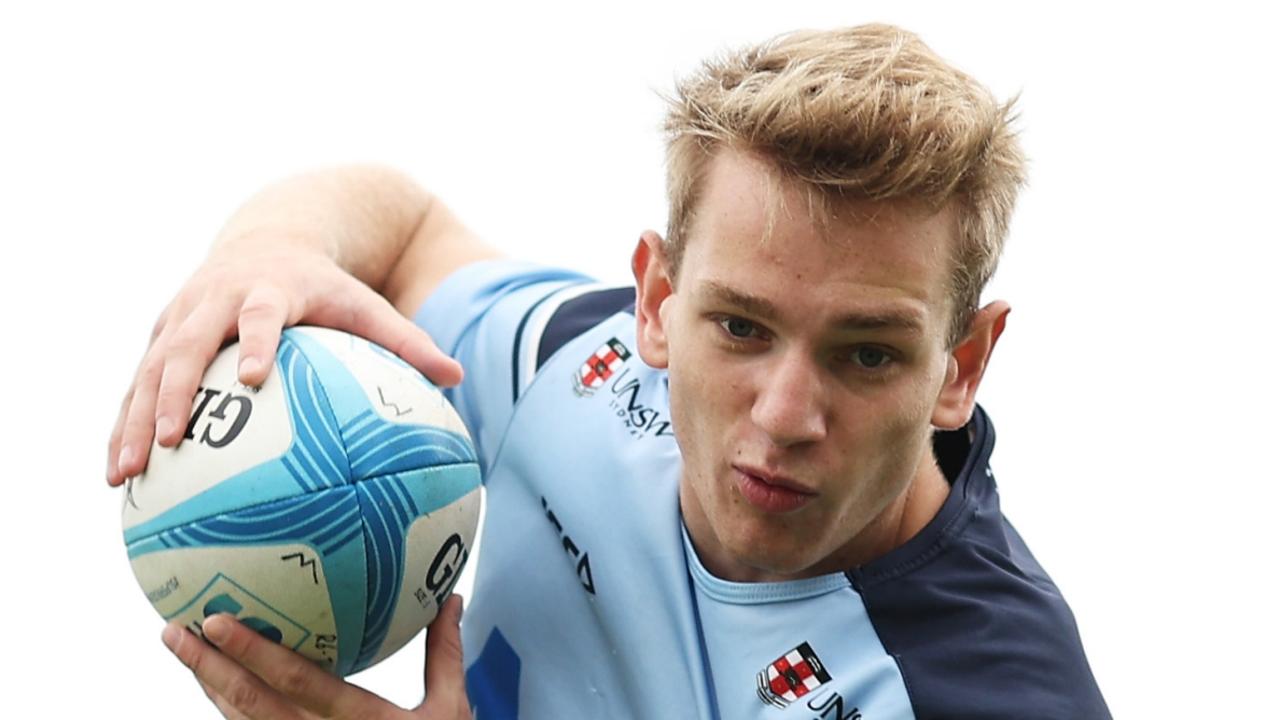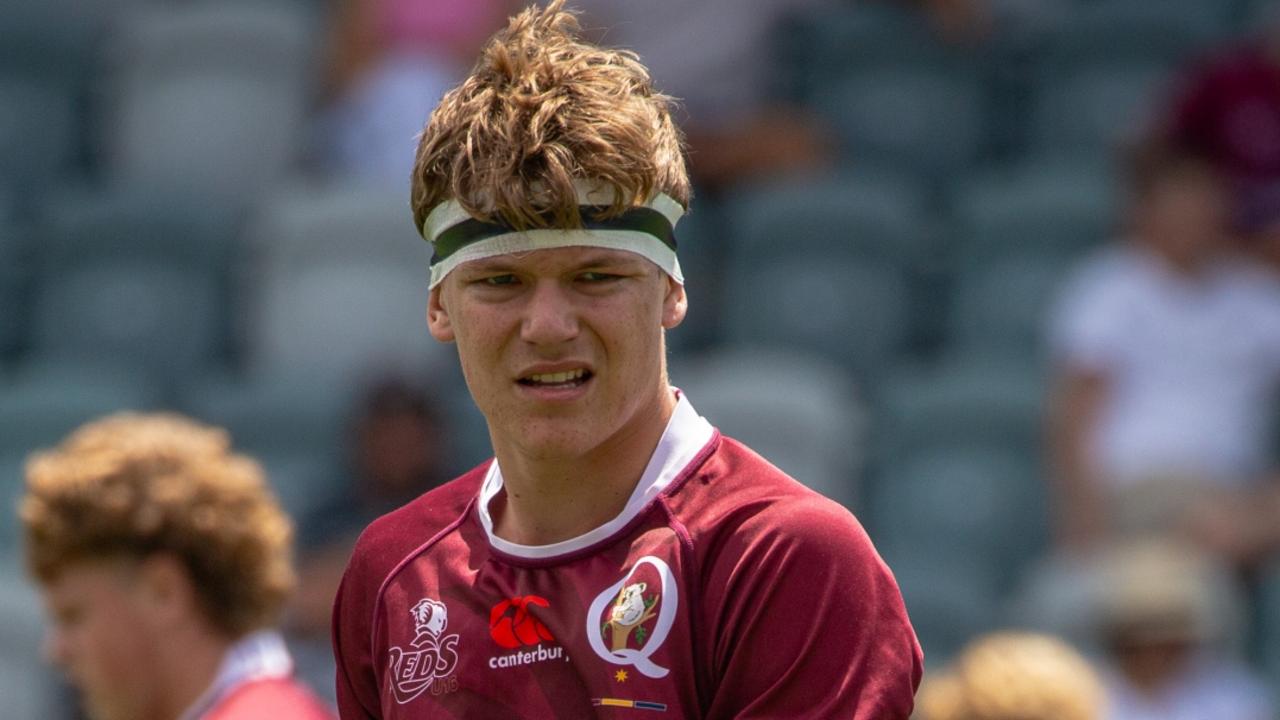Remarkable race that defined legendary BBC coach David Magoffin
For almost 30 years from the end of the Second World War the GPS Head of the River was dominated by one school, and one remarkable coach, but one race stood out to David Magoffin.
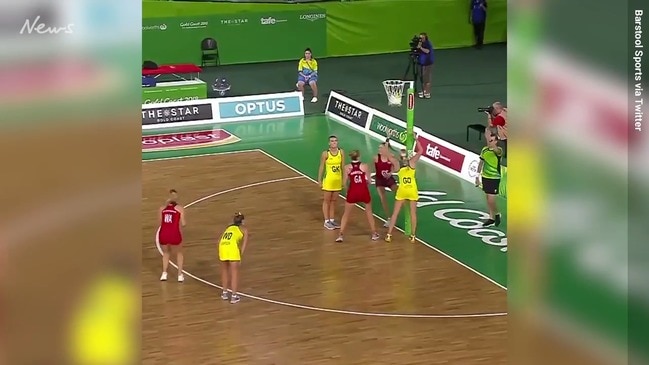
Other Sports
Don't miss out on the headlines from Other Sports. Followed categories will be added to My News.
For almost 30 years from the end of the Second World War the GPS Head of the River was dominated by one school, and one remarkable coach.
The school was Brisbane Boys College and the coach the legendary “Old Fox”, David Magoffin.
As coach of BBC from the recommencement of official racing after the war in 1946 until his retirement, Magoffin prepared 27 crews for the Head of the River, and won on 14 occasions.
The closest any other school came in that period was Brisbane Grammar, with five wins.
Between his first win in 1946 until 1955 when the race changed from fours to eights, Magoffin’s crews won six out of nine races contested, including an unprecedented four consecutive wins from 1949 to 1952.

He then won another eight titles in the eights, the last being his final race as coach in 1972.
But for all the success Magoffin and his crews had over 27 years, there was one win that stands out; the race that the Old Fox described as “my best coaching effort” and those who saw will always remember as the most dramatic and thrilling of all Head of the River races.
It was 1962 and, as always Magoffin had given his crew a Melbourne Cup preparation through the lead-up regattas.
As coxswain Stephen Hood recalled, “Dave didn’t give a damn about the races along the way. They were just practice runs.”
To that end Grammar dominated the early regattas while Magoffin fine-tuned his crew ensuring they peaked at precisely the right time.
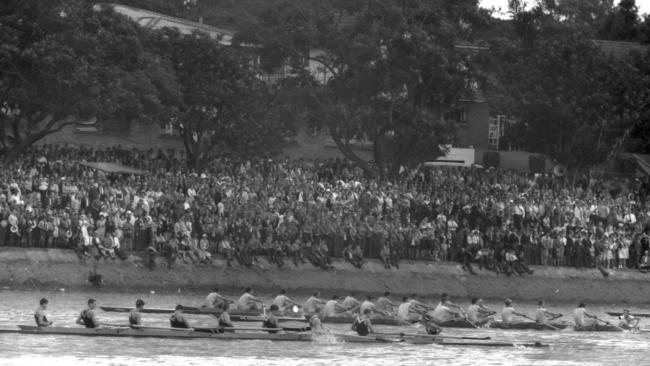
While Grammar was red-hot favourite on the day (it was said one of the Grammar rowers’ mothers had baked a celebratory cake with a hole in the middle to fit the O’Connor Cup) the BBC crew remained confident despite an early setback.
At the lane draw held three nights before the race BBC drew lane six, known as the “Hoodoo Lane”.
In those days the race course stretched along Milton Reach, from William Jolly Bridge to a finish line about 100m past the Regatta Hotel. Lane six, on the far outside of the course, cut across a 400m bend next to Davies Park known as “dead water” because there was no current to assist the rowers.
But Magoffin had a plan. With the stretch out of sight of most of the other crews he told Hood to use it to their advantage and up the tempo while they were hidden in the bend.
He even temporarily anchored a tub in a flag with it and took Hood out in a boat so he could line up a tree on the bank to know when to steer closer to the shore and when to come back out.
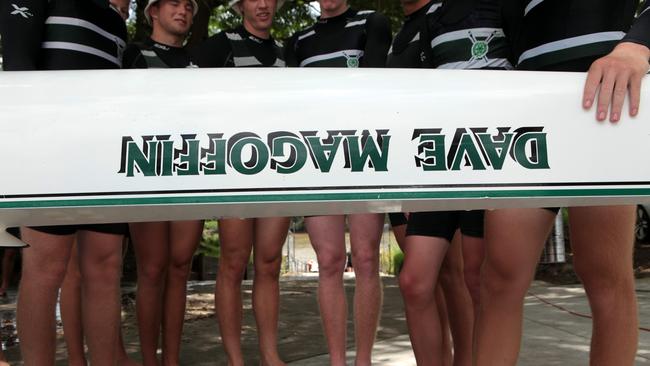
The plan worked perfectly. The BBC crew was hidden from the estimated crowd of 20,000 and their opponents as they moved into top gear. The commentator called it as, “It’s Grammar and Churchie …” then as BBC burst into view, “… and BBC’s miles ahead.”
Which is when it all threatened to fall apart. With 200m left to go, four-man Ian Robertson suddenly pulled his oar from the water and slumped backwards semi-conscious.
As Hood desperately tried to keep the crew together, three-man Jim Blackburne showed astonishing presence of mind to take his feet out of the chocks and put them on Robertson’s back, pushing him forward. While continuing to row, Blackburne “locked” Robertson over his oar, preventing it from falling back into the water and acting as a brake.

He also managed to keep Robertson in the boat.
“If I’d been thrown into the water I wouldn’t be here to talk about it,” Robertson said. “I never blacked out. It was a grey out. I’d had a heavy cold for two days and pretty much rowed myself to a standstill.
“I was embarrassed more than anything because of all the fuss but it would have been a lot worse if we hadn’t won.”
What should have been an easy cruise to the finish turned into a desperately close run thing, but BBC limped across the line for a remarkable victory.
Magoffin, as usual, was unfazed telling the crew as always, “Well done boys” before putting the cup under his arm and walking home.
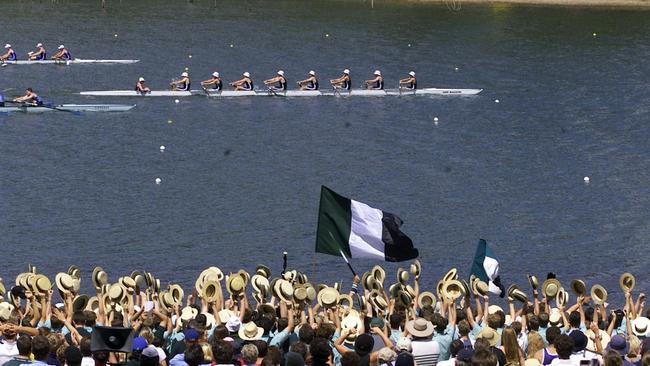
Following the 1972 win Magoffin retired to the NSW Blue Mountains where he died a year later from a heart attack aged 69.
In 2000 Dr John Drewe, who rowed bow in Magoffin’s 1957 winning crew, went to visit his grave at Blackheath Cemetery and finally found it unmarked and overgrown. A fundraising appeal was launched and quickly raised the money to erect a headstone.
It reads: ‘David O. Magoffin: The Old Fox. A gifted and loved rowing coach. This memorial was erected by those who remember.”

